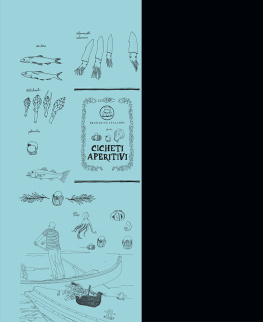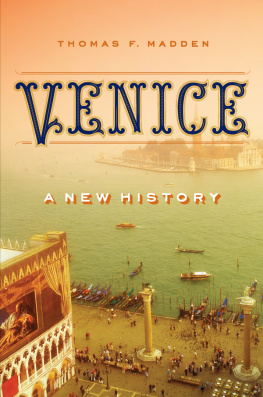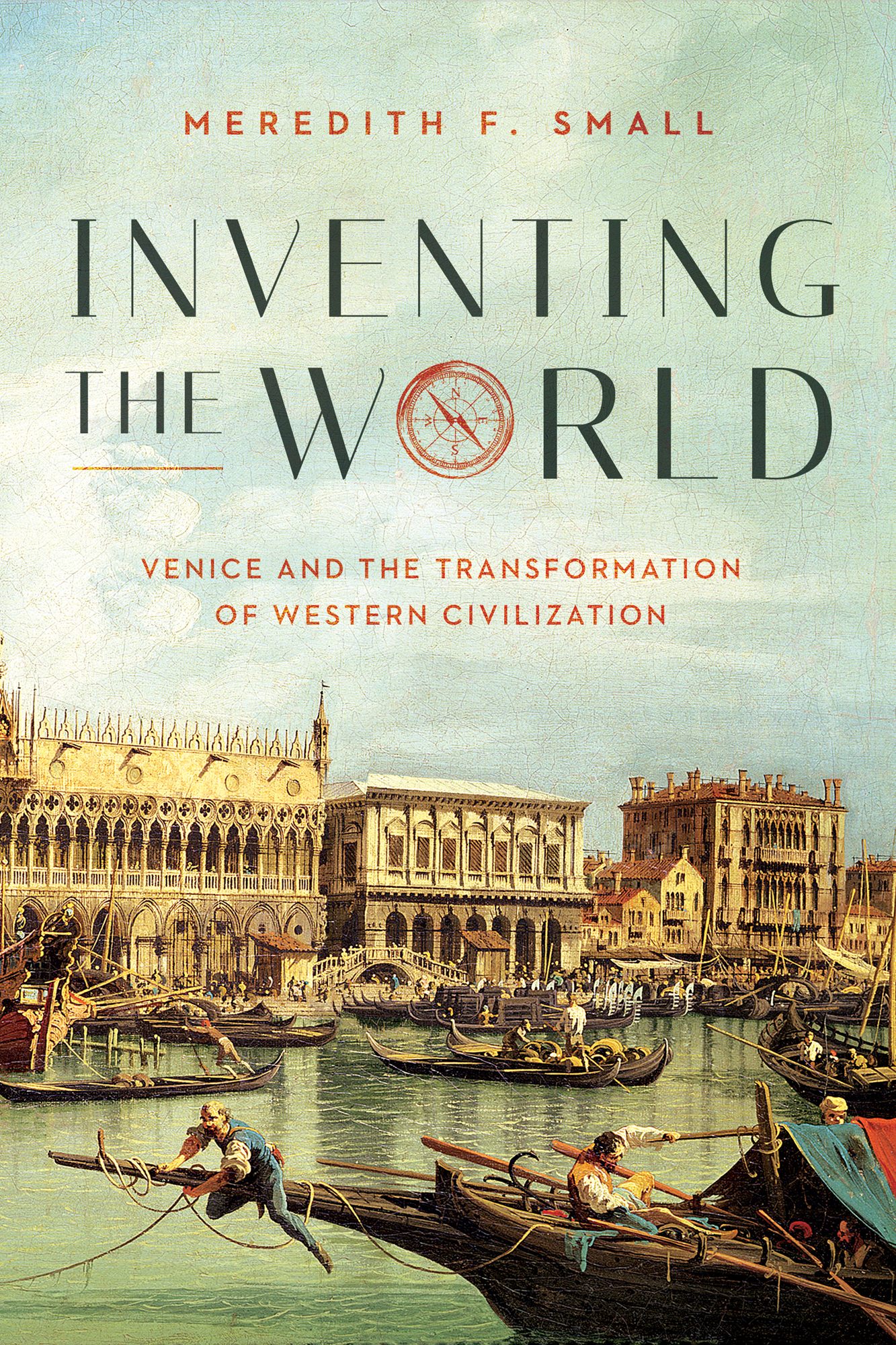Contents
Guide
ALSO BY MEREDITH F. SMALL
Our Babies, Ourselves
Kids
Whats Love Got to Do With It?
The Culture of Our Discontent
Female Choices
INVENTING THE WORLD
Pegasus Books, Ltd.
148 West 37th Street, 13th Floor
New York, NY 10018
Copyright 2020 by Meredith F. Small
First Pegasus Books cloth edition December 2020
Interior design by Christopher Brian King
Jacket design: Faceout Studio, Amanda Hudson
Imagery: Bridgeman Images, The Molo, Venice, Canaletto, (Giovanni Antonio Canal) (1697-1768) Author photo: Paola Lanart
All rights reserved. No part of this book may be reproduced in whole or in part without written permission from the publisher, except by reviewers who may quote brief excerpts in connection with a review in a newspaper, magazine, or electronic publication; nor may any part of this book be reproduced, stored in a retrieval system, or transmitted in any form or by any means electronic, mechanical, photocopying, recording, or other, without written permission from the publisher.
Library of Congress Cataloging-in-Publication Data is available.
ISBN: 978-1-64313-538-0
ISBN: 978-1-64313-539-7 (ebook)
Distributed by Simon & Schuster
www.pegasusbooks.com
For Francesca
Mi so tua e ti, ti xe mia.
An invention is not a revolution, it is only the beginning of a journey.
Printing Evolution Exhibition,
Correr Museum Venice,
September, 2018
There are men in this city and around it attracted by its excellence and magnificence, many men of different origins, with ingenious minds and the capacity to imagine and discover different artificial things. And if it were possible to ensure that others could not reproduce the works and the artifices that they have invented, and guarantee them their honor, then these men would use their minds to discover things of great utility to our republic.
The First Patent Legislation
The Republic of Venice,
March 19, 1474
Preface
IT ALL STARTED with a comic book and a cocktail.
I had come to Venice, Italy, for a month long Italian language course. Monday through Friday I sat in a classroom with a bunch of other foreigners from all over the world. The only thing we shared was a desire to communicate in Italian and the willingness to study. For four hours every day we had grammar points drilled into our heads while trying to navigate the confusion of elementary conversation in a new language. It was brain numbing. The only way to deal with it was to adhere to the venerable Venetian tradition of stopping at a local bar for a spritz of Aperol and prosecco on the way home. On this particular day, I had wandered into a bar near the Rialto Market, a bar frequented mostly by locals. As per usual, there were no tables, just a counter where people stood drinking and a narrow strip of wood placed in front of the open window. I asked for a spritz and parked myself on a stool looking outward, comic book in hand. As I bent my head and tried to translate the simple language of a thief and his girlfriend from Italian to English, an authoritative voice floated through the window from the little street outside. Not a surprise. Because this city is so densely populated and has no car or traffic noises, the sound of people talking is ubiquitous. Voices and conversations float down the calli over the bridges and fill the public spaces. Its a great place for eavesdropping. It was a few English-speaking tourists and a guide who was obviously explaining the long financial history of the Rialto district. We know Venetians were great shipbuilders, said the guide. But they also invented double-entry bookkeeping, bank-to-bank transfers, and government bonds. I stopped reading, fished a pencil out of my purse, and quickly wrote down those statements in the margins of my comic book.
It was the word invented that grabbed me. As an anthropologist, I am always intrigued by any mention of cultures changing and developing and always interested in what exactly pushes that change forward. I am also interested in the apparently universal human urge to bring something new to the table. Novel ideas occur to us all the time, and as a species we also seem to appreciate new things; the very roots of our evolutionary success surely must underlie both those processes. And here a complete stranger was telling me that Venetians had invented some very important economic concepts that have lasted into modern-day culture. What struck me was not just the particular inventions but the fact that those inventions had lasted for centuries and had, in fact, formed our present-day ideas about banking, accounting, and investments. Like most tourists, I had just thought of the city as a pretty face in an unusual setting. But comic book in hand, I suddenly felt like I was being initiated into a whole new perspective on Venice as a place of action and innovation, that there might be an undiscovered current running through the lagoon that the guidebooks and history books never talk about. Before that moment, I had never thought of Venice as an instigator of human cultural change or considered, even for a moment, that this city continued to be a great influence on how we operate today. Now I had a new perspective on Venice, a possible path to follow that no one had noted before.
I was right to pay attention to that pivotal moment. After the revelation at the bar, I was forever attuned to any mention of inventions by Venetians. I spent my free time the rest of that month visiting museums and confraternities where I quietly came across other things that Venetians had invented or discovered. I quickly moved from writing those firsts above the speech bubbles of a comic book to keeping a list of Venetian inventions in a special notebook. Once back home, I began to check that list, item by item, to confirm if what I had overheard, seen, or read was true. I took that list online and into the university library and checked and rechecked every claim of invention from every possible angle. My most trusted resource was academic research by historians of Venice because they, too, are honor bound to get their facts correct. With my growing skills in Italian, I was also able to peruse academic research written in Italian, and that opened up the world of Venetian archaeology and Venetian Renaissance history. The list of inventions and new ideas grew so fast and so broadly over so many disciplines that it became obvious I had compiled the framework for a book, and a new perspective on Venice.
I soon realized that it wasnt just the fact of those inventions but the context in which they appeared that made for a good story, one that includes scholars, mercenaries, peasants, noblemen, priests, scallywags, businessmen, explorers, and inventors. It also has to do with boats, money, plague, face cream, opera, semicolons, tiramisu, and many other familiar objects, events, and laws. But these Venetian inventions and new ideas were not just disjointed quirky events that rated only superficial acknowledgement. As I organized my list into topics (rather than chronologically), it was obvious that many of these Venetian firsts were still with us, part of the fundamentals of Western culture, how we think and how we operate. I was stunned to realize that many of these ideas and inventions that I was bringing to the forefront had significantly shaped our contemporary notions of institutions and conventions that we in Western culture think of as normal. The thread of Venetian thought is woven into how we now envision community, health care, economics, consumerism, and globalization, all the big picture subjects that are the scaffolding of our lives. Venetians, I soon realized, invented our world. I found this revelation especially interesting because Venice has none of the characteristics that we usually associate with sophisticated innovation. There had been no royal, wealthy, or powerful class throwing patronage at anyone in Venice, no intellectual body that revered smart people, and no real pressing need for inventing anything. Even more interesting, most of those original Venetian ideas came before or after that grand period of cultural newness, the Renaissance.


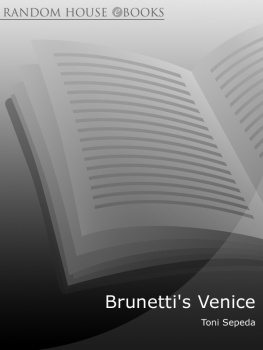
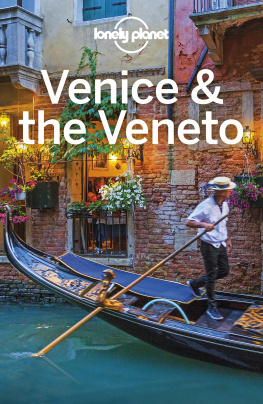
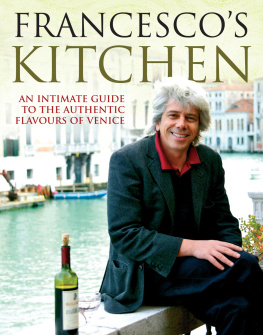
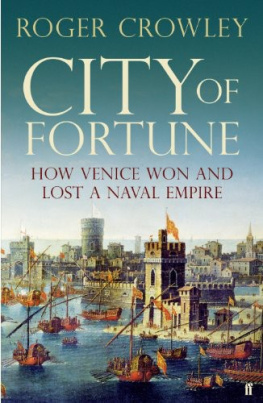
![Bosworth - Italian Venice: a history[Electronic book]](/uploads/posts/book/194557/thumbs/bosworth-italian-venice-a-history-electronic.jpg)

